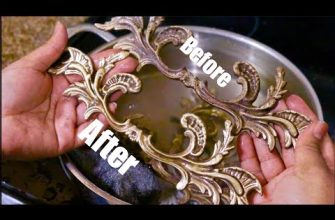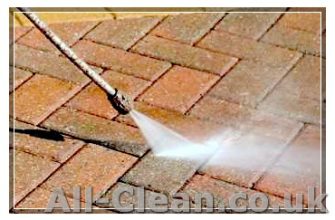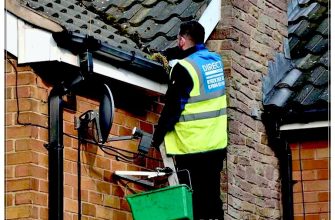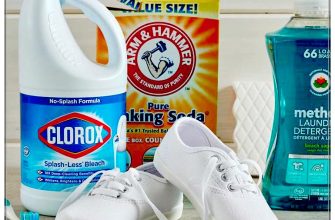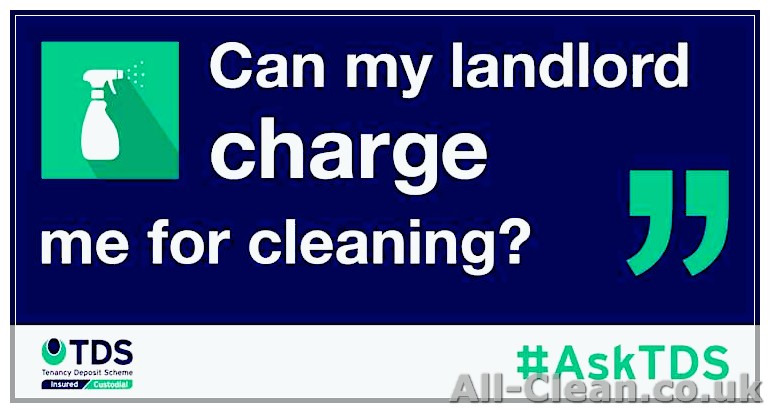
When it comes to moving out of a rental property, tenants are often concerned about how much cleaning is required and whether they will be charged for it. Many landlords commonly deduct cleaning fees from tenants’ deposits to cover the costs of hiring professional cleaners. However, in the UK, the legislation surrounding cleaning fees is changing.
Starting from 2023, landlords will no longer be permitted to charge tenants for cleaning services as part of their tenancy agreement. This change is being implemented to protect tenants from being overcharged or unfairly treated by landlords. Landlords will still be able to deduct money from the deposit if there are any damages or missing items, but they cannot charge a separate fee for cleaning.
In the past, it was frequently charged by landlords and agents for professional cleaning services at the end of a tenancy. This fee was often based on the entire state of the property, regardless of how much cleaning was actually required. This meant that tenants could end up paying hefty fees even if they had cleaned the property themselves or hired their own cleaners.
In cases where tenants did not meet the expected level of cleanliness, landlords were within their rights to charge for cleaning services. However, this led to many disputes and issues surrounding the definition of cleanliness and the expectations landlords had for the property. Tenants often found themselves in a situation where they had to pay for professional cleaning despite their best efforts.
So, what will happen from now on? Landlords will have to rely on the existing protections provided by deposit schemes, such as the Tenancy Deposit Scheme (TDS). These schemes will still cover the costs of cleaning if there are valid claims, such as heavy stains on the carpet or missing services that were part of the regular cleaning. Tenants can rest assured that their deposits will be protected and any disputes regarding cleanliness will be handled fairly.
In conclusion, the UK law is changing to protect tenants from being charged excessive cleaning fees by landlords. From 2023 onwards, landlords will no longer be able to charge for cleaning as a separate fee. However, they can still deduct money from the deposit for damages or missing items. Tenants should ensure they leave the property in a clean state, meeting the expected level of cleanliness, to avoid any disputes or claims against their deposit.
- New Cleaning Regulations for Landlords in the UK
- Responsibilities and Expectations
- Deposit Protection and Disputes
- Professional Cleaning
- Conclusion
- How Landlords Can Legally Charge for Cleaning in the UK in 2023
- Can Landlords Charge for Cleaning?
- How can Landlords Determine the Cleaning Costs?
- What if the Tenant Cleans the Property?
- Conclusion
- Understanding the Maximum Amount Landlords Can Charge for Carpet Cleaning
- What Does the Law Say?
- How Much Can Landlords Charge for Carpet Cleaning?
- What if I Cleaned the Carpets Myself?
- Avoiding Disputes
- What to Do If You Think Your Landlord is Charging Unfairly for Cleaning
New Cleaning Regulations for Landlords in the UK
As of 2023, new regulations regarding cleaning responsibilities for landlords in the UK have come into effect. These regulations aim to address several issues that tenants often face when it comes to cleaning at the end of their tenancy.
Responsibilities and Expectations
When a tenant checks out of a rental property, they are expected to return it in a reasonably clean condition. In the past, landlords would often deduct cleaning fees from the tenant’s deposit if the property was not left in an acceptable state. However, with the new regulations in place, landlords must clearly state in the contract how much cleaning they expect to be done by the tenant upon their departure.
Landlords must provide a detailed description of the expected cleaning standards and the reasons for any deductions that may be made. This provides transparency and ensures that tenants know exactly what is expected of them. Additionally, landlords must also offer the option for tenants to hire professional cleaning services themselves if they prefer.
Deposit Protection and Disputes
When it comes to deposit protection, landlords now have more responsibilities to fulfill. They must use a government-approved tenancy deposit scheme where the deposit is kept in a separate account. This scheme acts as a mediator in case of any disputes regarding the return of the deposit, including cleaning-related disputes.
If a tenant believes that the cleaning deductions are unfair or unreasonable, they can raise a dispute within the scheme. An independent adjudicator will then assess the evidence provided by both parties and make a decision. This process helps protect tenants from unfair deductions and ensures a fair resolution.
Professional Cleaning
Landlords should also note that there are some situations where they are responsible for arranging professional cleaning services. For example, if a property has heavily soiled carpets or if the tenant neglected regular cleaning throughout their tenancy.
On the other hand, if a tenant chooses to hire professional cleaners themselves, they should keep the receipt as proof of the service provided. Landlords are then responsible for assessing the quality of the cleaning and deducting the appropriate amount from the deposit if necessary.
Conclusion
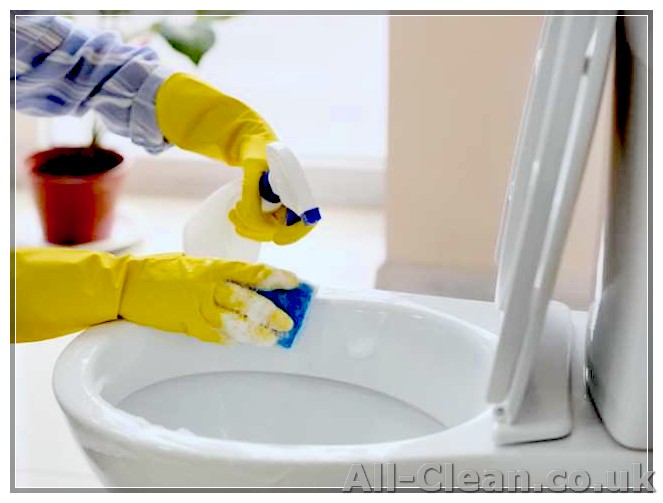
In conclusion, the new cleaning regulations for landlords in the UK aim to protect both tenants and landlords. By clearly stating cleanliness expectations and offering dispute resolution options, tenants can feel more confident about their deposit being returned fairly. Landlords, on the other hand, can maintain the condition of their properties and handle any necessary cleaning costs effectively. It is advisable for both parties to familiarize themselves with these regulations to ensure a smooth end to the tenancy.
How Landlords Can Legally Charge for Cleaning in the UK in 2023
When it comes to the topic of cleaning charges, there is often much confusion among both landlords and tenants in the UK. It’s important to understand the laws and regulations surrounding this issue to ensure a fair and legal process for both parties involved.
Can Landlords Charge for Cleaning?
The short answer is yes, landlords can charge tenants for cleaning, but there are specific conditions that need to be met in order for this to be legally permissible. According to the law, landlords are allowed to deduct money from the tenant’s deposit to cover the costs of cleaning that go beyond what is considered normal wear and tear.
It’s important to note that normal wear and tear includes minor scuffs, marks, and light dust. However, if the property requires more than a basic clean, such as deep cleaning or removal of excessive dirt, the landlord may be entitled to charge for these additional cleaning costs.
How can Landlords Determine the Cleaning Costs?
Landlords should have a detailed description of the property’s condition at the start of the tenancy, including any existing cleanliness issues. This documentation will serve as evidence to compare the property’s cleanliness at the end of the tenancy. If the property is in a significantly worse condition than when the tenant moved in, the landlord can deduct cleaning costs.
While there is no set scheme for cleaning costs in the UK, the Association of Residential Letting Agents (ARLA) provides some guidance. ARLA recommends that landlords charge for professional cleaning services, which can be worth the money if it ensures the property is in a good condition for the next tenant.
What if the Tenant Cleans the Property?
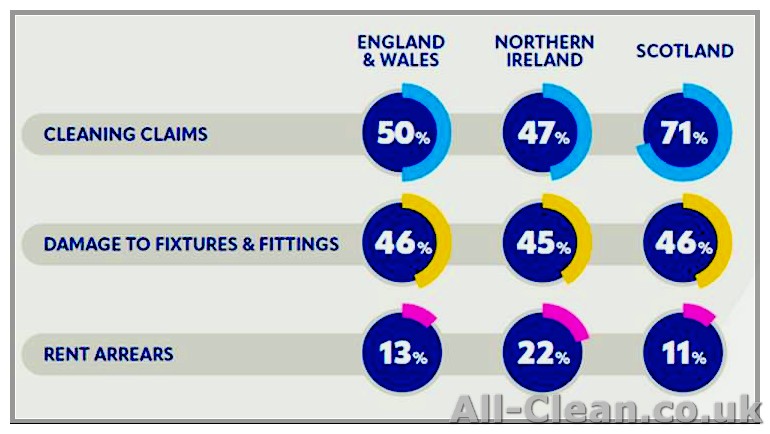
If the tenant decides to clean the property themselves, it’s important that they do a thorough job. Landlords are not obligated to accept substandard cleaning and can still charge for professional cleaning if the property does not meet the required cleanliness standards.
Tenants can learn more about the expected cleanliness standards from the Tenancy Deposit Scheme (TDS) and ask for guidance if they have any questions or concerns regarding the cleaning requirements.
Conclusion
In conclusion, landlords are permitted to charge tenants for cleaning costs in the UK, but these charges must be based on a fair assessment of the property’s condition. It’s important for landlords and tenants to have clear agreements about cleaning responsibilities and to document the property’s condition before and after the tenancy. By following these guidelines, landlords can ensure a fair and legal process, and tenants can understand their obligations when it comes to cleaning.
Understanding the Maximum Amount Landlords Can Charge for Carpet Cleaning
When it comes to renting a property in the UK, tenants often have questions about what they can and cannot be charged for. One common area of confusion is the cost of carpet cleaning. In this article, we will explore the regulations and guidelines around carpet cleaning charges for landlords in the UK.
What Does the Law Say?

In the UK, landlords cannot charge tenants for “fair wear and tear” of the property. This includes routine cleaning, such as vacuuming and light stain removal. However, if a tenant has left the property in a dirty or damaged state, the landlord may be able to deduct the cost of cleaning from the tenant’s deposit.
How Much Can Landlords Charge for Carpet Cleaning?
The amount that landlords can charge for carpet cleaning varies depending on several factors. Firstly, the cost must be reasonable and in line with industry standards. Secondly, the landlord must provide evidence and a detailed description of the cleaning services that were required.
In general, the Tenancy Deposit Scheme (TDS) in the UK suggests that the cost of carpet cleaning should not exceed the amount that a tenant would reasonably be expected to pay for such services. This means that if a tenant could have the carpets professionally cleaned for £100, the landlord should not charge more than this amount.
What if I Cleaned the Carpets Myself?
If you decided to clean the carpets yourself before moving out, it is important to document this. Take photos and keep receipts or invoices for any cleaning products or equipment you purchased. This will help prove to the landlord that the carpets were cleaned to a professional standard.
However, it’s worth noting that landlords may still hire professional cleaning services even if you cleaned the carpets yourself. If the landlord can demonstrate that the carpets were not cleaned to a satisfactory standard, they may choose to hire their own cleaners and deduct the cost from your deposit.
Avoiding Disputes
To avoid disputes over carpet cleaning charges, it is recommended to communicate with your landlord or letting agent. Ask them about their expectations for carpet cleaning when you move out, and if they require professional services. You can also refer to the standards set by industry organizations like ARLA (Association of Residential Letting Agents) for guidance.
If you have questions about carpet cleaning charges or your deposit, always refer to your tenancy agreement. This document should outline the landlord’s responsibilities, as well as any charges that may be deducted from your deposit upon moving out.
What to Do If You Think Your Landlord is Charging Unfairly for Cleaning
If you have recently moved out of a rental property and you believe your landlord is charging you unfairly for cleaning, there are steps you can take to address the situation. Here are some tips to help you navigate this process:
- Review your tenancy agreement: Start by reviewing your tenancy agreement to see if there are any specific provisions regarding cleaning responsibilities and charges. This will give you a better understanding of what you agreed to when you moved in.
- Check the condition of the property: Before you moved out, thoroughly check the property to ensure it is in a clean and acceptable condition. Take note of any areas that may need some additional cleaning.
- Contact your landlord: Once you have gathered all the necessary information, reach out to your landlord to discuss your concerns. Clearly communicate your position and provide any evidence, such as photos or videos, to support your claim.
- Involve a cleaning professional: If your landlord remains adamant about charging you for cleaning, consider hiring a professional cleaning service to assess the property. Their expertise can help determine whether the cleaning charges are justified or excessive.
- Seek guidance from a trusted organization: If you are unable to resolve the issue with your landlord directly, consider seeking guidance from organizations such as the Tenancy Deposit Scheme (TDS) or the Association of Residential Letting Agents (ARLA). They can provide you with additional advice on how to handle the situation.
In the UK, landlords are permitted to charge for cleaning if it is explicitly stated in the tenancy agreement. However, they cannot charge an excessive amount that goes beyond what is considered fair and reasonable. If your landlord cannot prove that the cleaning costs meet these standards, you may have a valid case to dispute the charges.
Remember, it is the landlord’s responsibility to protect your deposit and return it to you in a timely manner. If you believe your landlord is unfairly withholding money from your deposit, you have the right to dispute the charges and seek resolution through the proper channels. Be sure to keep all communication and documentation regarding the cleaning dispute for future reference.

